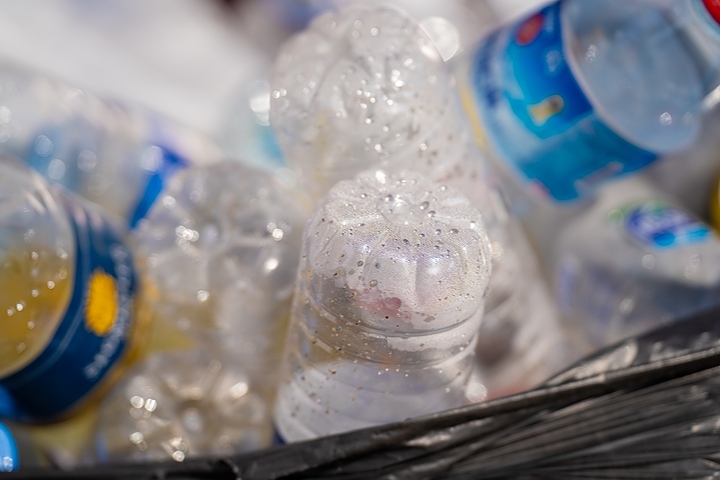PLASTICS WASTE
“Producing less material is the solution, not recycling” / UK households throw away 1.7 bn pieces of plastics every week – Greenpeace report
Recycling and burning waste are not the answer to the UK’s mounting problem with plastics waste, according to Greenpeace UK and compatriot environmental campaign group Everyday Plastic (Margate; www.everydayplastic.org).
 Recycling might not be the best solution, environmental groups say (Photo: PantherMedia/egunes_) |
As the pair released the results of their latest Big Plastic Count – a week-long programme held annually that sees thousands of households across the country count the amount of plastics they throw away – Greenpeace UK and Everyday Plastics renewed calls for governments to sign a global plastics treaty to cut plastics production by 75% by 2040.
The latest Big Plastic Count survey, held last month, revealed that the UK’s 28 mn households collectively throw away around 90 bn pieces of plastic every year, less than a fifth of which is recycled domestically.
“The UK tops the charts for plastics waste per person globally, second only to the US,” Greenpeace UK claimed, adding that the Big Plastic Count showed “just how much we need to cut the amount of plastics that is being produced. These results prove that we need ambitious and urgent action from the government.”
Describing the results as “truly shocking”, Greenpeace UK and Everyday Plastic argued their survey showed that households threw away 1.7 bn pieces of plastic every week, or 90 bn a year. Only 17% was recycled, with more than half (58%) of the number of pieces being incinerated, compared with 46% two years ago.
Greenpeace UK said data was collected from nearly 225,000 individuals, from over 77,000 households, along with members from community groups and businesses across the country, as well as 28,000 school pupils and 50 members of the UK parliament.
The Big Plastic Count 2024 found that snack packaging (699,932 pieces) and fruit and vegetable packaging (697,085 pieces) were the most commonly counted plastic items.
After recycling and incineration, export (14%) and landfill (11%) were the most common destinations for the plastics waste material.
Related: BPF and Environment Services Association team up to promote plastics recycling
Burning waste was not the answer, the Big Plastic Count organisers said, nor was recycling. “Incinerating plastic can release more carbon dioxide per tonne than burning coal, worsening climate change. This doesn’t match the government’s own commitment to drastically reduce greenhouse gas emissions by 2050. What’s worse, 18 new incinerators are being built in the UK. This problem is not going away.”
Meanwhile, recycling systems “can’t cope with the sheer amount of plastics waste that’s being produced. And vast quantities of it can’t be recycled at all. The recycling process releases microplastics into our air and water – worsening the very issue it’s designed to solve.”
Related: Study shows alternatives to plastics increase GHG emissions
It was time for the government to take action and support a global plastics treaty, Greenpeace UK and Everyday Plastics said, “which will set a global target to reduce plastics”.
25.04.2024 Plasteurope.com [255116-0]
Published on 25.04.2024
